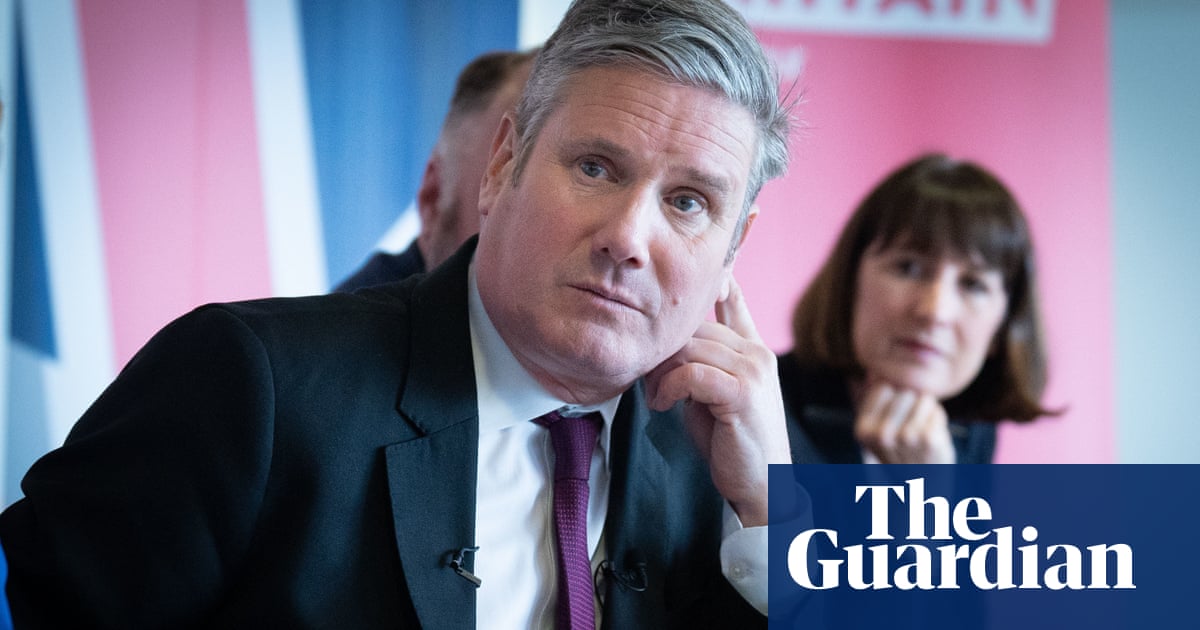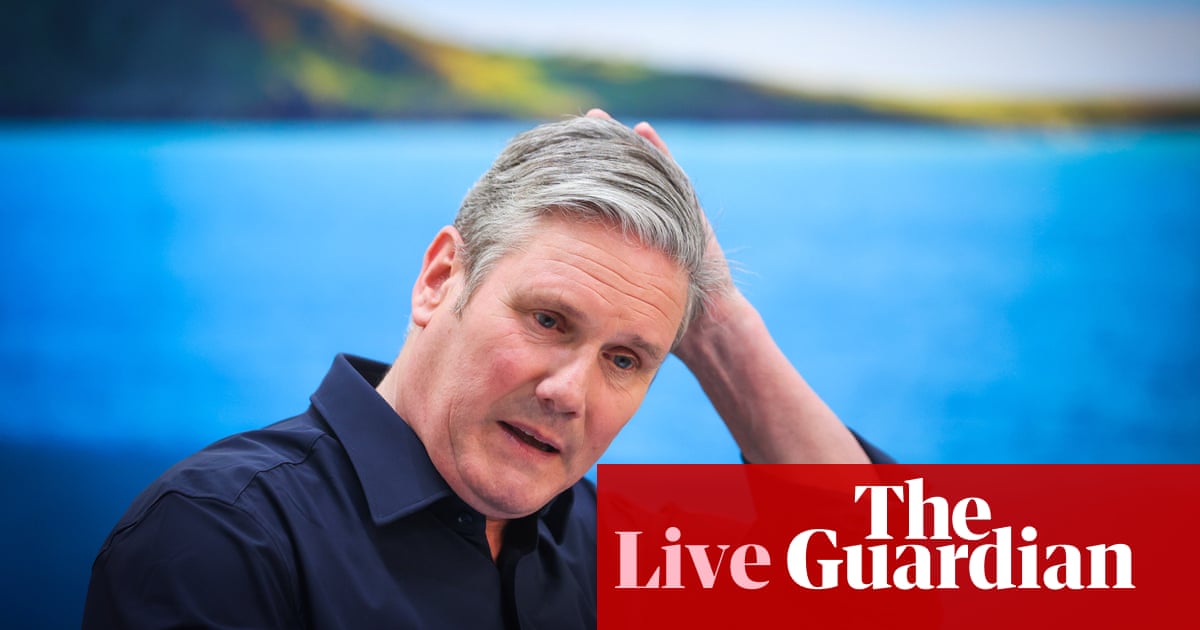
Clean energy companies would be offered up to £500m a year to set up manufacturing in the UK, to build the wind turbines, solar panels and other infrastructure needed to reach net zero, under plans set out by Labour.
But Keir Starmer, the Labour leader, on Monday also gave assurances to the oil and gas industry that production would continue in the North Sea “for decades to come”, to the consternation of green campaigners.
Under plans for a “British jobs bonus”, Labour would allocate £500m a year for each of the first five years of government, to provide capital grants to companies in low-carbon industries, including wind and solar energy, hydrogen and carbon capture and storage.
Companies wishing to supply clean energy in the UK, under a continuation of the existing incentive system, known as contracts for difference, would have to demonstrate they were creating high quality jobs in the UK.
Labour said the bonus would particularly benefit industrial heartlands and coastal communities, and areas that have past or current coal, oil and gas industries, and pointed to an independent estimate that 65,000 new jobs could be created in this way.
Starmer told an audience of energy experts and green campaigners in Edinburgh on Monday that the Tory government and the Scottish National party had failed to secure green jobs in the UK.
“Britain has the second largest offshore wind capacity in the world, a close second only to China, yet across the North Sea in Denmark they’ve got three times as many jobs. How do you explain that?” he asked.
“How do you explain Scottish wind turbines built in Spain, in Holland and Indonesia, as the workers in the fabrication yards in Fife – who would be proud to build something great in their country – look out their window and watch others putting them up in the Forth? There is no justification.”
Labour’s clean energy strategy was launched in Edinburgh to wrongfoot the SNP and bolster Starmer’s efforts to win back Westminster seats lost to the party. Starmer also agreed to base the proposed state-owned energy company GB Energy in Scotland, under pressure from the Scottish Labour leader, Anas Sarwar.
Climate campaigners believe Labour has also outflanked the SNP, which appears to be watering down the strong pro-climate commitments by Nicola Sturgeon to quickly phase out North Sea production.
While extolling the virtues of clean energy, however, Starmer was also careful to reassure his audience that jobs in the North Sea oil and gas fields were not at risk. Labour has vowed to halt the licensing of new oil and gas fields, but will not seek to rescind licences issued by the Tories, or to halt production from existing fields.
This means the controversial Rosebank field in the North Sea, for which final permission is believed to be imminent, could go ahead and Labour would not rescind the licence if elected.
Halting production from already licensed fields would be legally tricky, and any future government that did so could be subject to claims for billions in compensation. Taking such a stand could also spook investors now and lead to a disorderly situation in the North Sea, rather than a managed transition away from fossil fuels.
Union leaders sharply criticised Starmer this month for his plans to halt North Sea licensing, calling the proposals “naive” and saying they threatened current and future jobs. Starmer, the shadow chancellor, Rachel Reeves, and Sarwar were at pains throughout the policy launch on Monday to repeat that North Sea oil and gas would be needed “for decades to come”.
Ed Miliband, the shadow climate and net zero secretary, told the Guardian that Labour’s policy was in line with scientific advice on staying within 1.5C of heating.
The International Energy Agency (IEA) warned in 2021 that no new oil and gas exploration could take place after that date, if the 1.5C limit was to be kept, but current production need not cease immediately. Miliband said the North Sea was already in decline, so a transition to green energy offered an opportunity.
“We’re going to carry on using existing fields, we’re not going to turn off the taps,” said Miliband. “But what they [the IEA] say is that governments should not be issuing new licences. It’s the science-driven, evidence-based position. It’s also right for energy security.”
Labour strategists believe the £500m green manufacturing subsidy will help address fears that renewables companies will not shift manufacturing to the UK or produce the high wage engineering jobs that will be lost when North Sea production is being phased out.
Several attempts to attract those jobs to Scotland have already failed: pledges of windfarm jobs in Fife and northern Scotland have gone unrealised; the promise of large-scale tidal and wave energy schemes funded by Scottish ministers have not been met.
Green campaigners said turning off the taps would be necessary. Mary Church, the head of campaigns at Friends of the Earth Scotland, said: “Saying no to new licences is an important start, but the Labour leader needs to go further and stand up to the oil and gas companies that are ripping off householders and profiting as the planet burns.
“All parties need to acknowledge that no new projects can go ahead and some existing oilwells will have to be phased down before they run dry. If Rosebank, or any other development is approved by the current UK government, then it will have to be shut down by the next UK government.”












